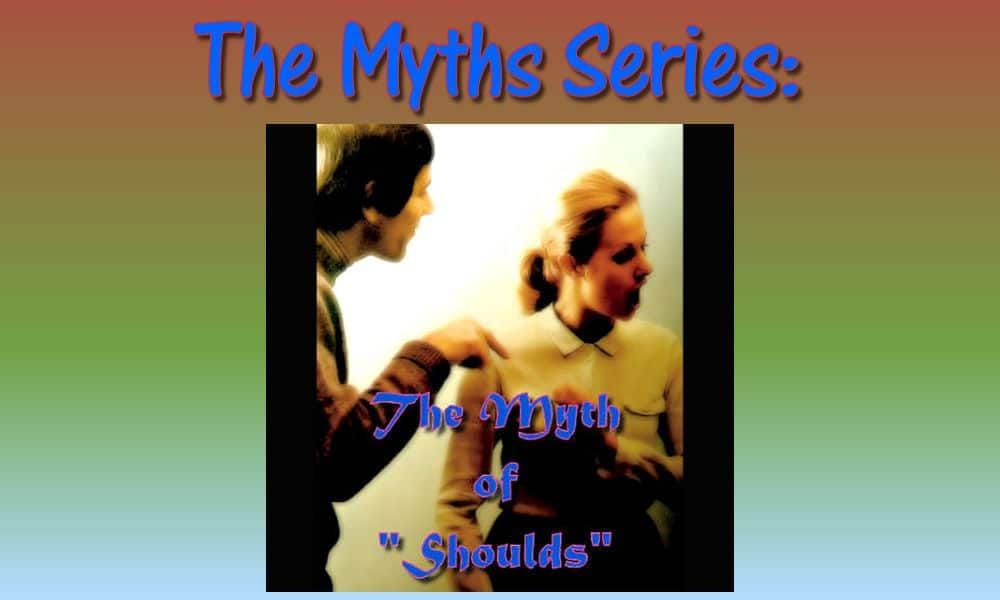- Is-ness: Life is not as it is. Life is as you are — The Myths Series
- The Myth of Absolute Truth — The Myths Series
- The Myth of Right and Wrong — The Myths Series
- The Myth of the Threat of Change — The Myths Series
- Unraveling the Myth of Shoulds — The Myths Series
- The Myth of Fairness — The Myths Series
- The Myth of No Consequences — The Myths Series
- The Myth of Altruism — The Myths Series
- The Myth of Easy — The Myths Series
- The Myth of Scarcity — The Myths Series
- The Myth of Limitations — The Myths Series
- The Myth of a Soulmate — The Myths Series
- The Myth of Sex Equaling Intimacy — The Myths Series
- The Myth of a Self — The Myths Series
- 5 Ideas About Compassion
The Myth of “Shoulds” — The myth of shoulds are declarations of opinion projected on others
Understanding the myth of shoulds is crucial to personal growth and self-acceptance.

This Endless Moment
An excellent guide to life and living.
Learn to focus your attention of who you really are.
Purchase all formats from Amazon
Purchase digital versions
(Apple, Nook, Kobo, etc.) from this page
“Shoulds” are the personalization of something that we declare to be an absolute. A “should” is a statement that some truth is self-evident, and “should” therefore be followed by others.
The myth of shoulds can lead to unnecessary pressure and expectations on ourselves and others. Understanding the myth of shoulds helps us recognize the pressure of societal expectations.
We’ve talked about the myth of absolutes, so stating that something is “self-evidently and absolutely true” is already on shaky ground.
This is a common manifestation of the myth of shoulds that affects interpersonal relationships. This is because what is true for me is not “self-evidently true” for you.
The person who “declares a should” moves from, “This is “true” for me” to this is “true for everyone.” From there, they self-righteously declare: “I should,” so “You should.” This is a prime example of the myth of shoulds in action.
They emphasize how “obvious” the “should” is.
Even though, as we all know, nothing is obvious —
and there’s not a hell of a lot that is self-evident, or even evident.
It doesn’t matter how craftily you word a “should” — it’s all the same nonsense.
To break free from the myth of shoulds, we must question our beliefs and expectations.
- Some people are clever enough to drop the word “should.” They’ll try something like: “If you love me, you’d agree with me.”
- Others lamely point to authorities, declaring, “I just read a book and took a course, and I absolutely know for sure what you need to do.”
- It’s no better when you say, “You should understand me.” All of which begs the question, “Why should (must I) I be interested in understanding you? Maybe you’re boring or just full of yourself.”
Ultimately, our understanding of the myth of shoulds will shape our personal narratives.

I love watching kids grow up. And part of growing up is discovering that being an adult means moving farther away from their parents’ perceptions and ways of doing things.
This process involves exploring, challenging, and shifting core beliefs.
However, most teens do the normal, teen thing. They replace their parents’ structures and ways of doing things with those of their peer group.
One teen and I were talking about sex and dating, and as we dug in, she said “I can’t talk to my parents about this stuff.” I asked her what she did do. “I ask my friends,” was her reply.
Now, I heard that and I wondered: “What could another 15-year-old possibly know about that or any other adult topic?” But I held my tongue and offered to listen and to answer any questions she chose to ask.
All teens do this little dance of trading one fervently held view for another equally rigid belief. I want them to grow up–to get over thinking there is a “right” answer, or that there is something they “should” be doing.
Recognizing the myth of shoulds is the first step towards self-liberation.
Odds are, though, most won’t. Not without help.
Unfortunately, most folk simply shift from one set of rigid beliefs to another as they try to find the “correct list” — the perfect list of “shoulds” — without ever questioning the premise, “Why do I think I (or others) should do anything?”
We don’t question ourselves because we believe in “shoulds.”
As kids, we hear stuff like, “You should be ashamed of yourself.” Parents do this to us to get us to fit in to their preconceived notions of how we “should” behave.
The only thing we really learn is that big people think that there is a universal list of “shoulds” that coincidentally matches what those big people already believe.
Much of relationship distress is a direct result of having a “should list” about how a “husband” or “wife” or partner (or ex!) ought to be behaving. Each person grasps onto their list as if it is real, as opposed to a construction of their imagination and perhaps a creation of our culture.
Understanding the Myth of Shoulds in Our Lives
Then, in their ignorance and audacity, they compare their partner to their made-up list, find the partner lacking, and try to force or manipulate them to change.
All of this happens because we give more power to an imagined list than to the person standing right there in front of us.
What getting over ourselves and our need to control others gains us is a better understanding of what’s actually happening.
By examining the myth of shoulds, we cultivate a more nuanced understanding of ourselves.
If I can’t relate with someone, it’s not because they are violating my list of “shoulds.” I don’t like the way they are behaving … wait for it … because I don’t like the way they are behaving.
That’s not to say that people don’t screw up. It’s about whether I think I have the right to attempt to impose my “shoulds” on another.

So, say I’m in a highly functional relationship, and I bump my nose against what my partner is doing. As I consider the issue, but before raising it, I take the time to listen to what I am hurting myself over — to what I am “objecting to.”
I ask myself, “Do I think there is some way my partner “should” be behaving that I can let go of?”
If I truly believe that raising the issue would benefit the relationship, I would say, “Here is what I am noticing that you are doing, and here is what I am making of it.”
This is not a request for my partner to change. This is a statement of my observations, which others can take or leave.
In this highly functional relationship, you and I would have an understanding that when one of us comments in this decidedly neutral way, the recipient will respond by looking at what they are doing–that “you” will not simply dismiss what I am saying as being “my issue.”
My comments are intended to invite you to look at yourself.
And this would happen in both directions, obviously.
The point of commenting is to create an environment of exploration for both parties. It is not to get the other person to follow one mode of being (one list of “shoulds.”)
Choosing this way is self-responsible and self-directed.
Comparing a person to an abstraction and then trying to get the person to change to fit the abstraction simply does not work. When I see, over time, that what I want and what I am getting does not match, I have three choices,
- I can accept the difference without complaint, and simply be curious, or
- I can whine, manipulate and try to control the person into “changing,” “seeing the light,” “waking up,” “getting it,” “reading the right book” — and make life miserable for them until they do, or
- I can leave. And by this I mean actually leave — many people leave, and continue to try to manipulate their ex into “behaving” — all for the “right” reasons, of course!
The middle option is, by far, the most common.
My favourite, direct from the mouths of clients: “I’ll treat you with respect when you stop drinking.” “I’ll stop drinking when you treat me with respect.” Both are indignantly superior in their “rightness,” their, “everyone knows how you should be behaving-ness.”
And, of course, nothing changes.
This week, notice your “shoulds,” your “Gee, your life would be better if only you would change to make me happy” list. Notice your, “I just don’t get why you don’t change. It’s self-evident” comments. Find your own place. Stop. Breathe. Look at your options. Then, work toward choice 1 or choice 3.





